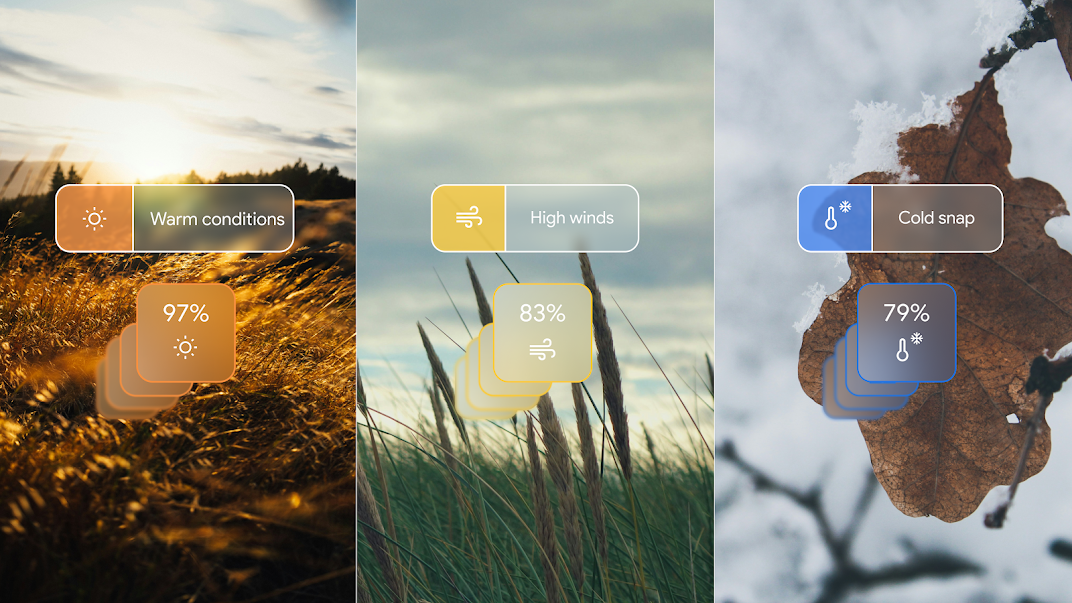
DMflow.chat
ad
DMflow.chat: Intelligent integration that drives innovation. With persistent memory, customizable fields, seamless database and form connectivity, plus API data export, experience unparalleled flexibility and efficiency.
Google GenCast is an innovative AI weather forecasting model that can predict weather conditions and extreme weather risks with high accuracy up to 15 days in advance. This article delves into how Google GenCast leverages artificial intelligence to enhance the accuracy and efficiency of weather forecasts, driving profound impacts across various industries.

Image source from the references below
Weather plays a critical role in influencing life decisions, workplace safety, and lifestyles. As extreme weather events become more frequent due to climate change, accurate forecasting becomes even more essential. However, forecast accuracy diminishes over time, especially beyond a few days.
Perfect weather prediction is nearly impossible. To address this, scientists and meteorological organizations use ensemble forecasting, which provides multiple weather scenarios and their probabilities. This approach helps decision-makers understand possible future weather patterns comprehensively. For instance, if most predictions indicate a hurricane will hit a region, uncertainty is low. If predictions vary widely, uncertainty is higher.
Google GenCast is a high-resolution (0.25°) AI ensemble model based on diffusion models. It predicts complex probabilistic distributions of future weather scenarios with remarkable precision. This breakthrough builds on Google’s years of research, expanding AI’s role in weather prediction.
Traditional methods rely heavily on physical models, which are slow and energy-intensive. Google GenCast, however, uses generative AI technology to learn from and simulate global weather data. This significantly improves accuracy and accelerates computation. A single forecast takes only 8 minutes, a massive leap compared to the hours-long calculations of traditional methods.
Google GenCast employs a generative model adapted to the Earth’s spherical geometry, transforming weather data (e.g., temperature, wind speed, pressure) into highly accurate predictions. The model is trained on 40 years of historical weather data from ECMWF, enabling a deep understanding of global weather patterns.
Google GenCast can predict the paths of tropical cyclones earlier and with greater accuracy, helping governments issue warnings and prepare response measures. For example, during simulations for Typhoon Hagibis, Google GenCast progressively narrowed the prediction range, ultimately pinpointing its landfall location with high accuracy.
Weather forecasting is vital for renewable energy planning, especially wind energy. GenCast’s high-precision wind forecasts improve reliability and accelerate the adoption of sustainable energy.
Despite its potential, Google GenCast complements rather than replaces traditional physical models, which remain crucial for training data and initial conditions. The synergy between AI and traditional meteorology maximizes forecasting accuracy.
To advance research in weather and climate, Google has made GenCast’s code, model weights, and historical forecast data publicly available. This initiative encourages collaboration with meteorological agencies, academic researchers, and industries to address global climate challenges together.
For more information, visit Google DeepMind and GenCast Open Model Release.
GenCast improves forecast accuracy and significantly reduces computation time. It excels particularly in predicting extreme weather risks.
Any researcher or organization can access GenCast’s public data for scientific research or application development.
Yes. GenCast has shown potential in energy planning, agricultural production, and disaster response. Its faster and more accurate forecasts, reaching up to 15 days, are reported to achieve an accuracy rate of 97.2%.

DMflow.chat: Intelligent integration that drives innovation. With persistent memory, customizable fields, seamless database and form connectivity, plus API data export, experience unparalleled flexibility and efficiency.
7-Day Limited Offer! Windsurf AI Launches Free Unlimited GPT-4.1 Trial — Experience Top-Tier AI N...
Eavesdropping on Dolphins? Google’s AI Tool DolphinGemma Unlocks Secrets of Marine Communication ...
WordPress Goes All-In! Build Your Website with a Single Sentence? Say Goodbye to Website Woes wit...
The Great AI Agent Alliance Begins! Google Launches Open-Source A2A Protocol, Ushering in a New E...
Llama 4 Leaked Training? Meta Exec Denies Cheating Allegations, Exposes the Grey Zone of AI Model...
Meta Drops a Bombshell! Open-Source Llama 4 Multimodal AI Arrives, Poised to Challenge GPT-4 with...
Gemini 2.5 Is Here: It Doesn’t Just Compute — It Thinks! How AI Is Bringing Deep Reasoning Power ...
Manus Officially Launches Paid Plans: Starter Package at $39/Month Manus Enters the Paid Market,...
Google Gemini 2.5 Pro API Pricing Announced: Devs Buzzing, Usage Surges 80% Google has offici...
By continuing to use this website, you agree to the use of cookies according to our privacy policy.